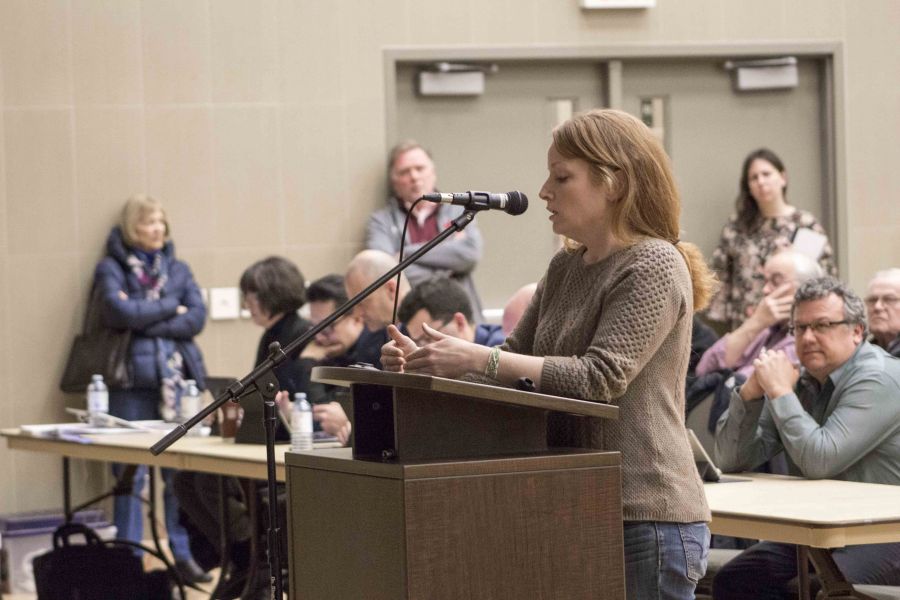When Renee Delaney came to council in April to ask the municipality of Niagara-on-the-lake to become a Bee City, she also spoke about her Small Scale Farm project, which encourages the production of local food without the use of pesticides.
She told councillors there couldn't be a conversation about bees without looking at pesticide use.
That raised a red flag at the council meeting, and her request was forwarded to the town's Communities in Bloom committee and to the agricultural committee.
But Bee City Canada, the organization that approached the Niagara group and asked for help talking to local municipalities, schools and businesses to talk about pollinator gardens, does not in its literature ask for restrictions on the use of pesticides, and Delaney says now she didn't intend for that to be part of her message to council. A request for Bee City designation, she also told council, comes with no binding agreement to do anything other than support pollinators and help promote education in the community about the importance of bees.
With such a mixed message, council could be forgiven for being confused about what should have been an uncomplicated request, and in fact Niagara-on-the-Lake, through its Communities in Bloom projects, is already working with partners, including schools and businesses, to promote pollinator gardens.
There are two ways of looking at the Bee City designation, and as is often the case, in NOTL, it seems more complicated than it needs to be.
Yes, NOTL is an agricultural community, which depends on bees for success. And yes, most farmers also use pesticides, which are widely accepted as being one of the causes of the decline in the population of pollinator bees.
So should NOTL just say yes to the designation of Bee City and carry on promoting and planting healthy and sustainable habitats for pollinators, as was really all Delaney was asking for?
Or should it have a deeper conversation that includes the use of pesticides, which as Delaney pointed out kill insects, including bees?
While some might like the municipality to tackle the pollinator issue by coming up with something more tangible than a statement that it supports bees, it would seem that Delany's request is to take a first baby step to something that will be a work in progress.
By doing that, it opens the doors to a more intensive discussion about what is causing pollinator bees to die and what role a municipality should take in the future, especially a municipality with such an important agricultural industry.
Becoming a Bee City is not the solution to a far-reaching and significant environmental problem, but it has value for what it can accomplish, which is bringing awareness of the issue to a grass-roots level. But before it gets to that stage in NOTL, the Town's agricultural committee is recommending taking it further by asking for a discussion that includes crop specialists and bee keepers. There is nothing wrong with having that diiscussion, but whatever the outcome, it shouldn't prevent the municipality from supporting a simple request – to promote private and public initiatives that support pollinator gardens.










